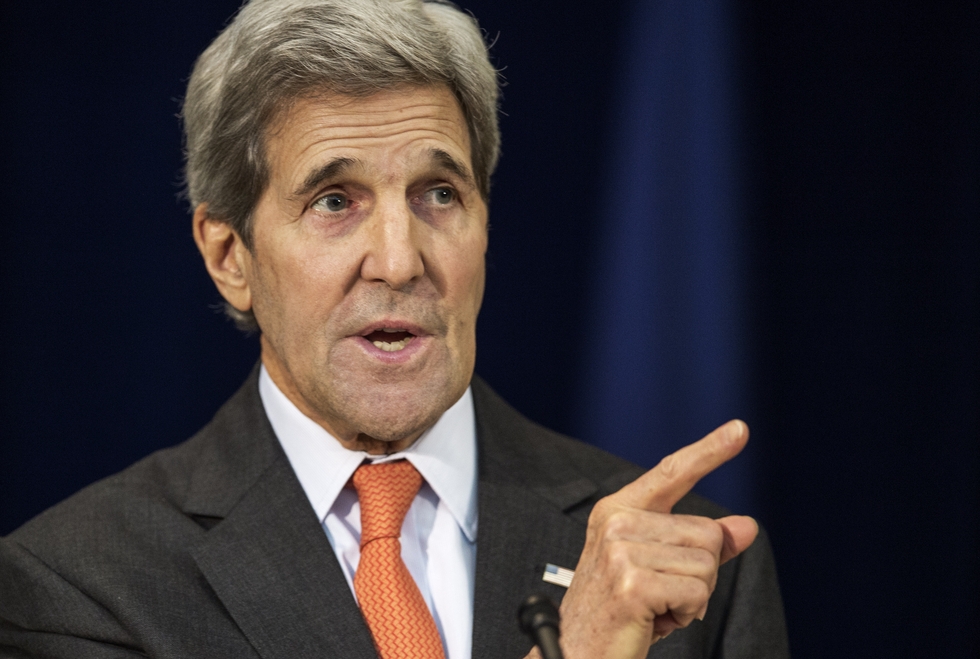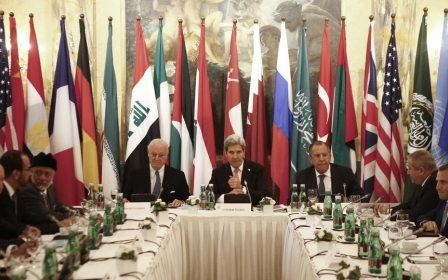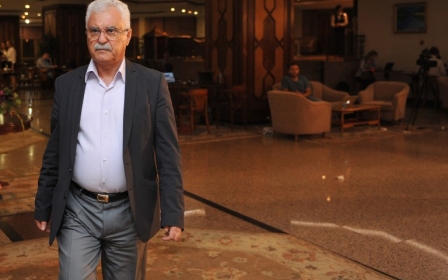Syria peace talks to start in Geneva on Friday: UN envoy

Syrian peace talks that were set to begin on Monday in Geneva will likely begin on Friday, said the UN's envoy to Syria, who said he expected to send invitations on Tuesday.
"We are definitely going to aim at starting the meetings on the 29th and invitations will be delivered tomorrow," Staffan de Mistura said during a press conference on Monday.
De Mistura said the process will begin with proximity talks, expected to continue for six months, and will focus first on a push for a nationwide ceasefire and access for humanitarian aid.
With the exception of the Islamic State group and the al-Nusra Front, which he said would not be invited because they are sanctioned by the UN Security Council, De Mistura would not elaborate on which groups will be invited.
His comments came after a member of Syria's leading opposition coalition said it was pressured over the weekend by the US to attend peace talks in Geneva this week or face "losing friends" and military support.
Fuad Aliko, of the coalition's high negotiation committee, said on Monday that a weekend meeting in Saudi Arabia between opposition chief Riad Hijab and John Kerry, the US secretary of state, was "neither comfortable, nor positive".
Aliko said Kerry's warning about loss of friends was understood to mean "a halt to political and military support to the opposition".
The opposition has said it does not want to begin talks with the Syrian government while Bashar al-Assad retains power and Russia continues to bomb rebel forces. Assad refuses to step down.
Assad's supporters in Moscow have meanwhile protested at the composition of the opposition, saying it includes groups it considers "terrorist", and has attempted to decree who can attend talks in Geneva.
"[Kerry] tried with all his efforts to insist on the necessity of us attending, saying we'd be able to do whatever we want there, but he was not able to reassure us that we are going into negotiations, rather than nothing more than a dialogue," said Aliko.
"We want negotiations that revolve around a political transition."
Syria's warring parties were scheduled to begin negotiations on Monday. Aliko said that his committee would decide on Tuesday whether to attend the talks.
Meanwhile, the Southern Front, a military wing of the opposition coalition, said it rejected any Russian interference concerning who would talk in Geneva.
"We fully and categorically reject Russian dictates. We fully and categorically reject Russia's interference in the political process by way of military aggressions, political extortion and barefaced meddling in the affairs of the opposition delegation," it said in a statement.
Kerry said on Monday he hoped for "clarity" within 48 hours on the parameters of talks.
"We are going to have the meeting and they [the talks] are going to start, we will have clarity I hope within 24 hours, somewhere like that, 48, something pretty soon," Kerry said.
"The talks are going to take place soon, hopefully, hopefully, hopefully... I'm not in charge of that part," he said, adding that de Mistura "has to make the decision".
"We are talking about the modalities of the ceasefire, we are talking about the modalities of humanitarian or other confidence-building measures," he said, adding he felt "positive" over the negotiations.
But they have been delayed at least in part by a dispute over who will represent the opposition.
The high negotiations committee insists it should send a sole opposition delegation to the talks, but the committee excludes Syria's main Kurdish force and other opposition figures.
The Geneva talks have also been held up by a dispute about some of the members of the negotiating team chosen by the committee.
The committee has selected Mohammed Alloush of the Islamist rebel group Army of Islam as its chief negotiator, drawing the ire of some of its other members.
Russia said last week it continues to consider the Army of Islam a "terrorist" organisation.
New MEE newsletter: Jerusalem Dispatch
Sign up to get the latest insights and analysis on Israel-Palestine, alongside Turkey Unpacked and other MEE newsletters
Middle East Eye delivers independent and unrivalled coverage and analysis of the Middle East, North Africa and beyond. To learn more about republishing this content and the associated fees, please fill out this form. More about MEE can be found here.




